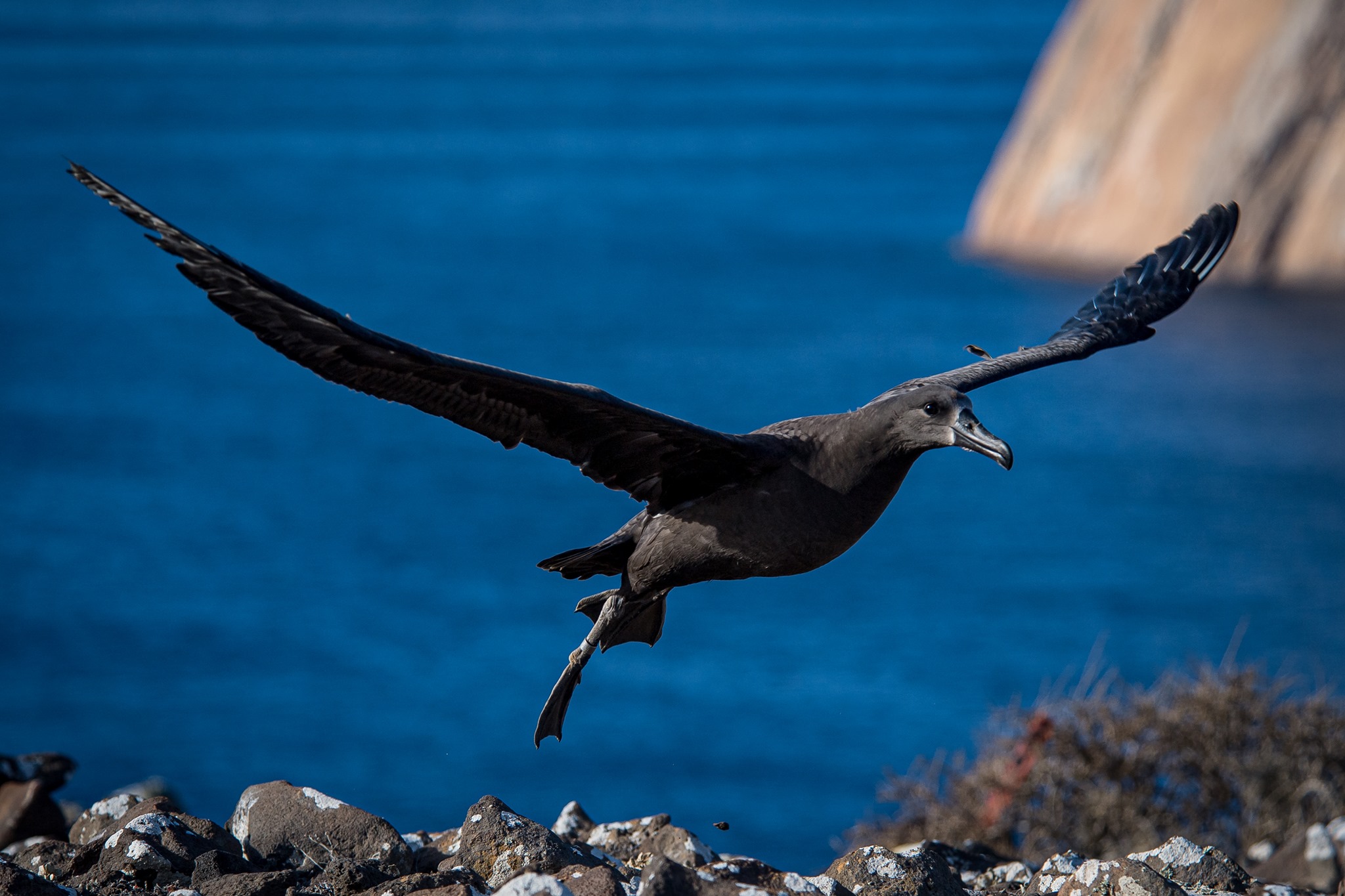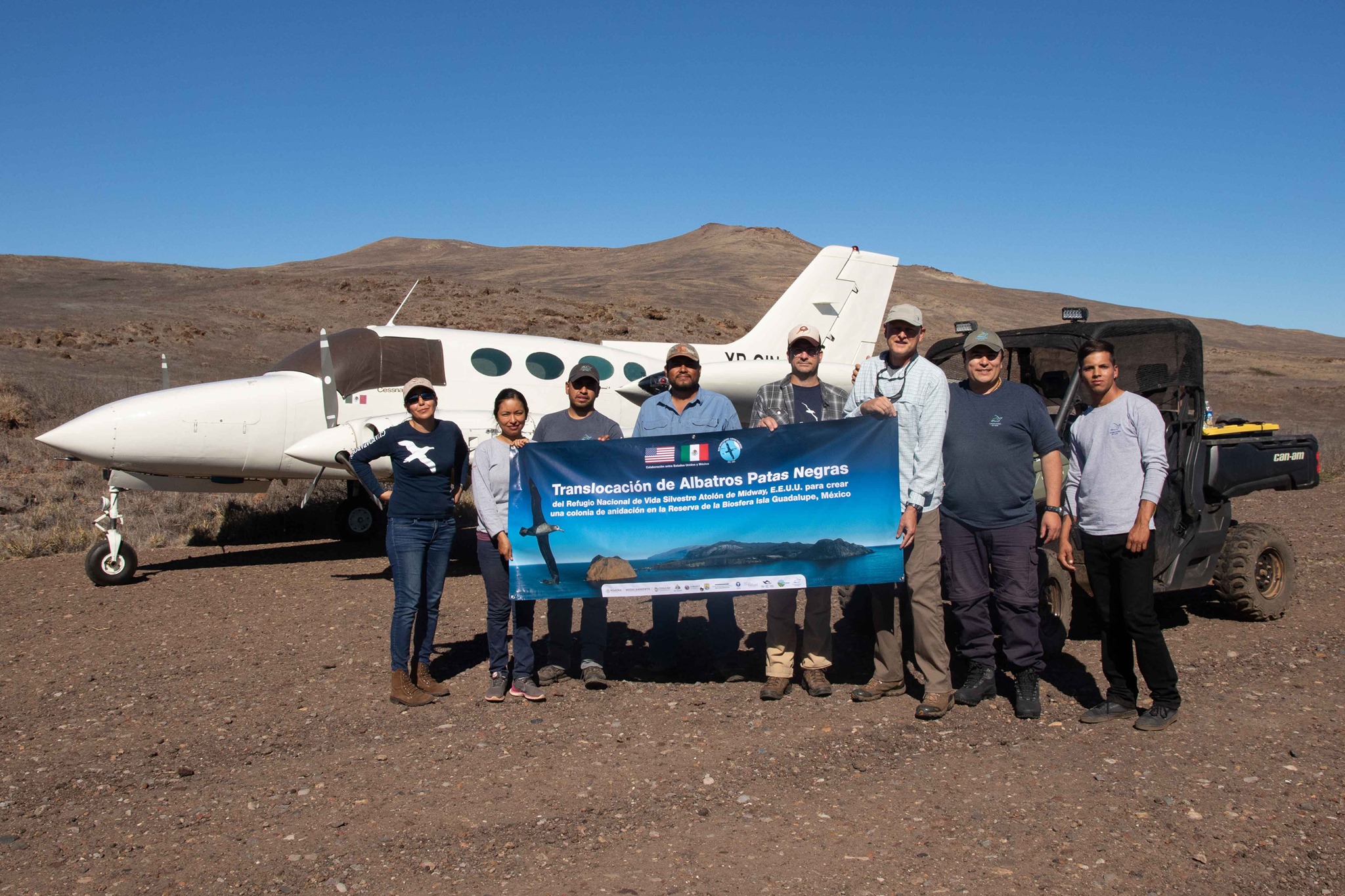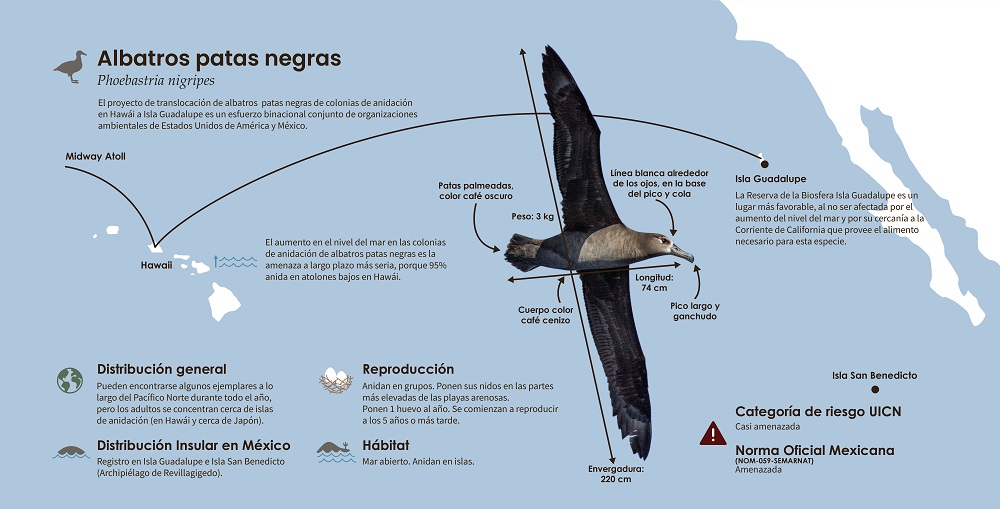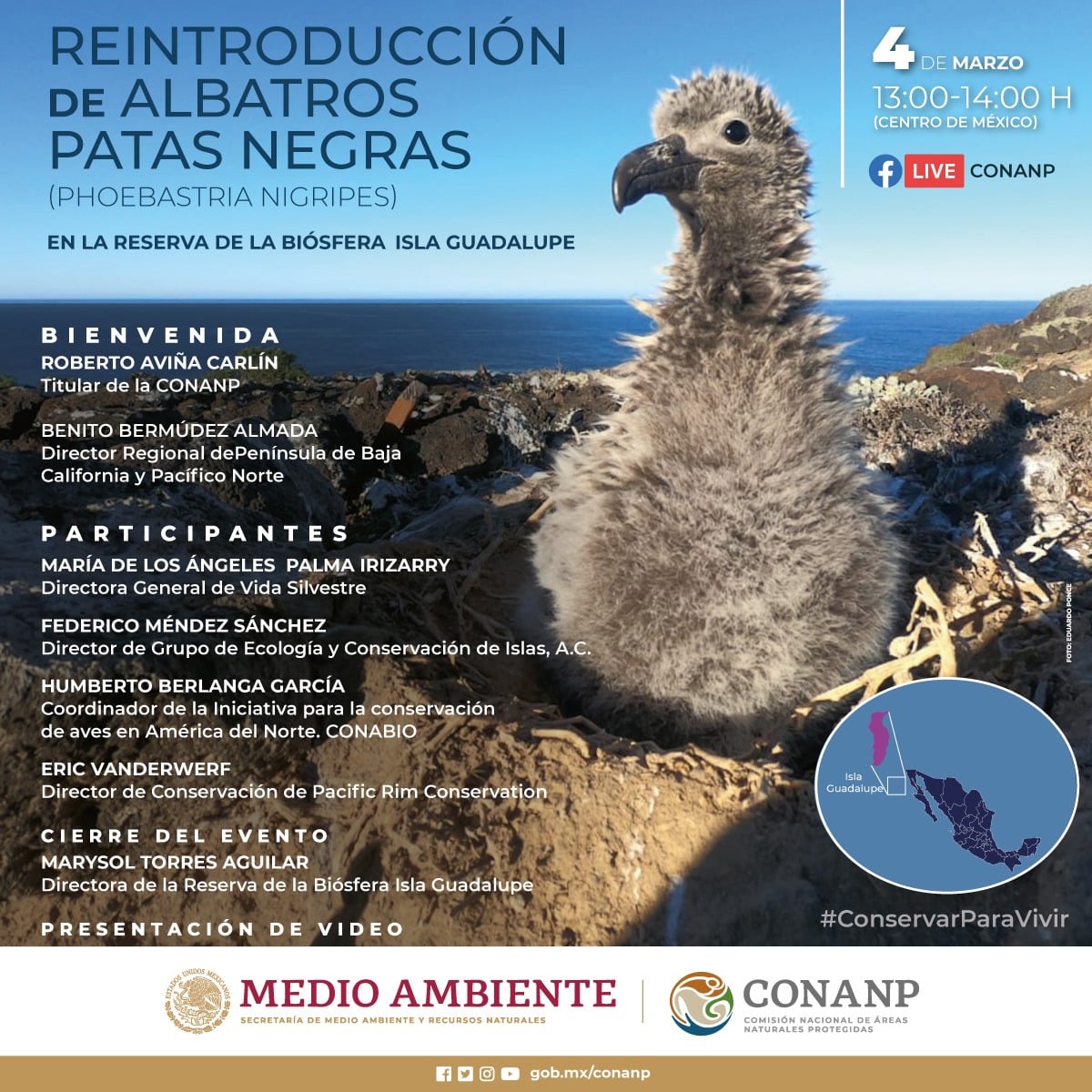 |
|
Airborne! A translocated Black-footed chick close to fledging takes a leap on Guadalupe Island, photograph by J.A. Soriano, Conservación de Islas (GECI)
The third year of a binational project to establish a breeding colony of Black-footed Albatrosses Phoebastria nigripes (BFAL) by the translocation of eggs and chicks from the USA’s Hawaii islands to Mexico’s Guadalupe Island has been successfully completed with 32 chicks fledging (click here). This brings the number of Black-footed Albatrosses fledging from Guadalupe over the three years of the project to 93.
“In a pioneer conservation project, Pacific Rim Conservation, Conservación de Islas and governmental institutions from USA and Mexico, have worked together to restore a nesting population of BFAL in Guadalupe Island, providing an alternative refuge and giving hope to the species to survive climate change effects.”

Eggs arrive! Celebrating the international translocation project with a banner on Guadalupe, photograph from Pacific Rim Conservation
According to Pacific Rim Conservation, translocated Black-footed Albatrosses should start returning as young adults to Guadalupe Island by 2026. Based on the environmental NGO’s translocation efforts with Black-footed and Laysan P. immutabilis Albatrosses in the James Campbell National Wildlife Refuge on the Hawaiian island of Oahu, pair formation and then egg laying should follow in the next couple of years.


The Mexican project partner, Conservación de Islas (GECI), describes the the translocation project in Spanish
Read more about the Guadalupe translocation project from here.
Mexico is not a Party to the Agreement but has attended some ACAP meetings as a breeding range state.
John Cooper, Emeritus Information Officer, Agreement on the Conservation of Albatrosses and Petrels, 03 August 2023

 Español
Español  English
English  Français
Français